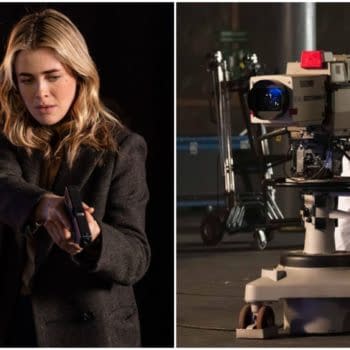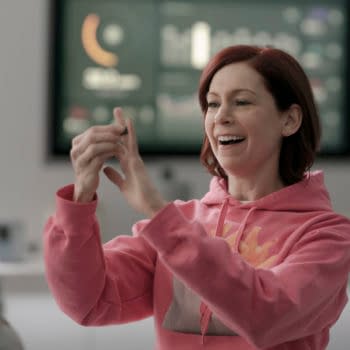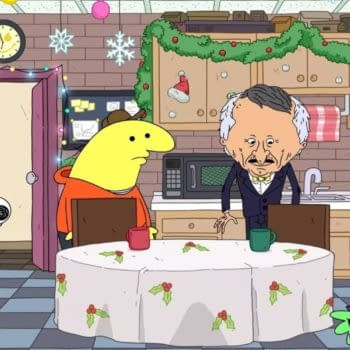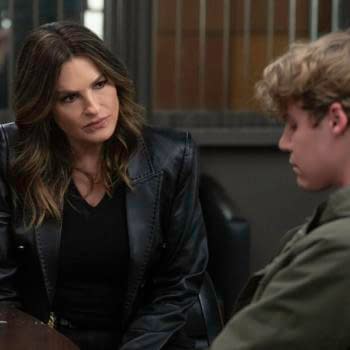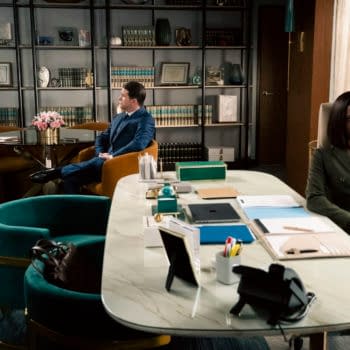Posted in: Amazon Studios, streaming, Trailer, TV | Tagged: amazon, invincible, robert kirkman, skybound, William Crabtree
Invincible Colorist Suing Robert Kirkman Over Animated Series Profits
While fans of Robert Kirkman & Amazon's animated adaptation of Kirkman's comic book series Invincible might have to wait a while longer for new on-screen action, it looks like there may be some legal action going on behind the scenes. Artist William Crabtree, colorist of the first 50 issues of the comic book series, is suing Kirkman, claiming he was talked into giving up his copyright co-ownership on Invincible to make the project easier to show to studios. According to Crabtree's claim, that resulted in him losing out on future profits as the franchise grew to include things like an animated streaming series.
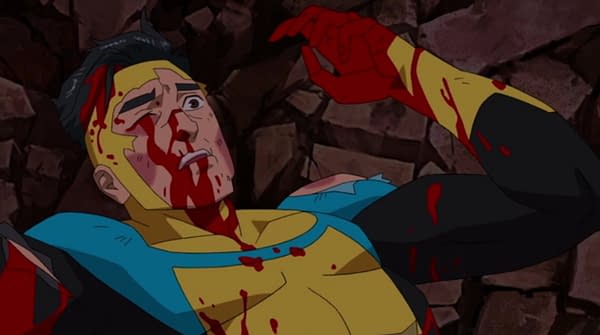
In the complaint, Crabtree's attorney Devin McRae (who is no stranger to Kirkman and lawsuits) claims that "Fraud and deceit has become a standard business practice for Kirkman and is apparently where his true creative aptitude lies." Crabtree is looking for a judgment confirming that he's a joint author of the IP, as well as a full accounting of what he would be owed (and that doesn't include punitive damages).
Here's a look at some of the claims that Crabtree makes in his complaint (originally reported by THR):
Crabtree's "Oral Agreement" Claim: That Crabtree and Kirman and Kirkman LLC had an oral agreement in place that Crabtree would get 20% of single sale proceeds of Invincible with a minimum of $40 per page as well as 10% of any revenue generated from (as the claim reads) "other film or television commercial exploitation of the Work together with any derivative projects based on the Work and any allied or ancillary rights in the Work."
Kirkman's "Certificate of Authorship": At 2005's San Diego Comic-Con, Crabtree claims that he was presented with a "Certificate of Authorship" to sign by Kirkman and Kirkman LLC, and that Kirkman told Crabtree that having his work characterized as "work-for-hire" was meant to make licensing the comic for a series adaptation easier and that Crabtree's rights and financial interests wouldn't change. "Kirkman falsely told Crabtree that Crabtree's rights and financial interest in the Work would remain unchanged if he signed the Certificate of Authorship and that the document would simply allow Kirkman to market the licensure of the Work more easily, resulting in greater profits for both of them," the lawsuit reads.
Then the Amazon Studios Series Deal Happened…: Crabtree claims that subsequently, he continued to see monies from comics sales, licensure of the work by MTV for a television-based motion comic, and Paramount Pictures' television & film options. But in 2020 (when plans for Amazon's adaptation started to become reality), Crabtree claims that he was told by Kirkman that he wasn't entitled to any monies from the project since he had no ownership interest in the work. "When Crabtree questioned Kirkman about why Kirkman continued to pay Crabtree royalties on the Work for years after the Certificate of Authorship, Kirkman stated that those royalty payments were actually just 'bonuses,' that he paid at his discretion," McRae wrote in the claim (which you can check out below).




